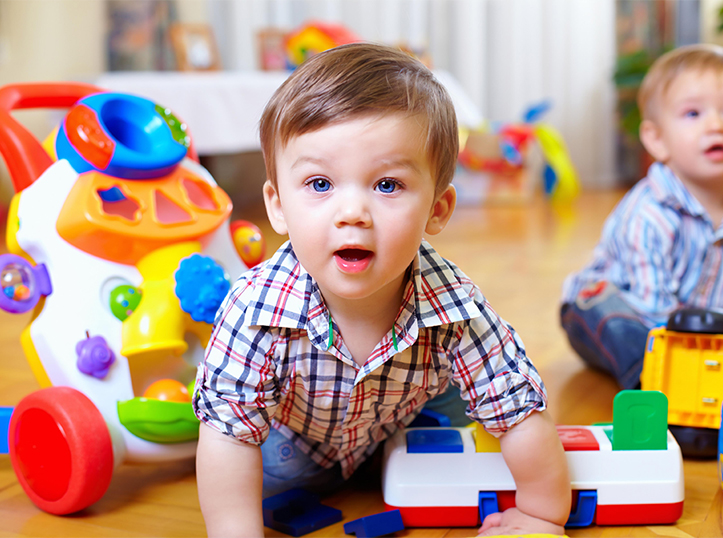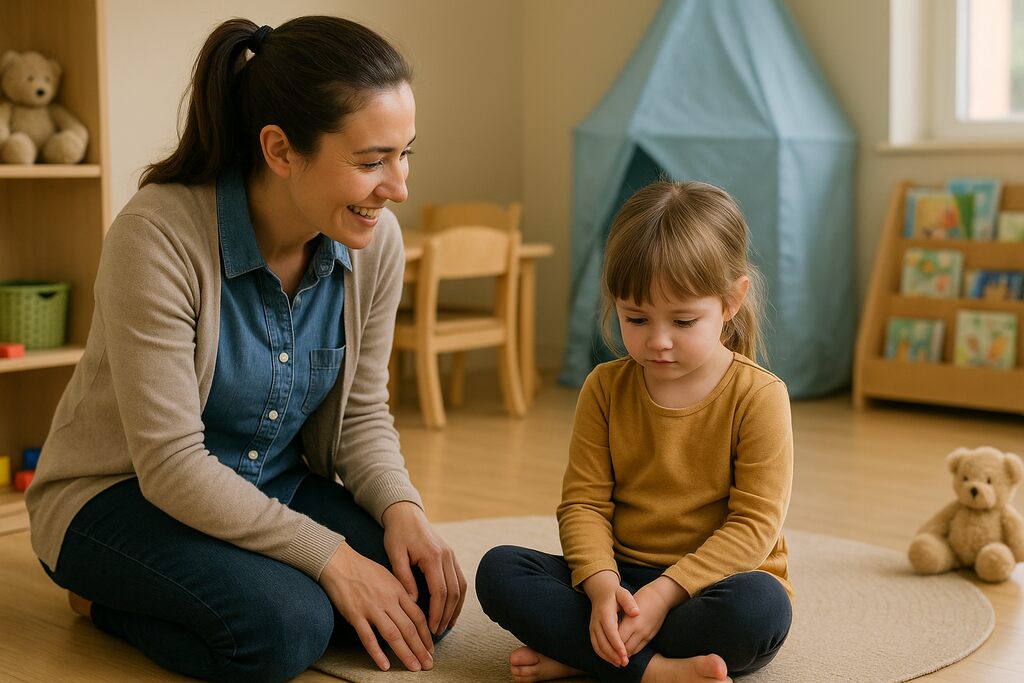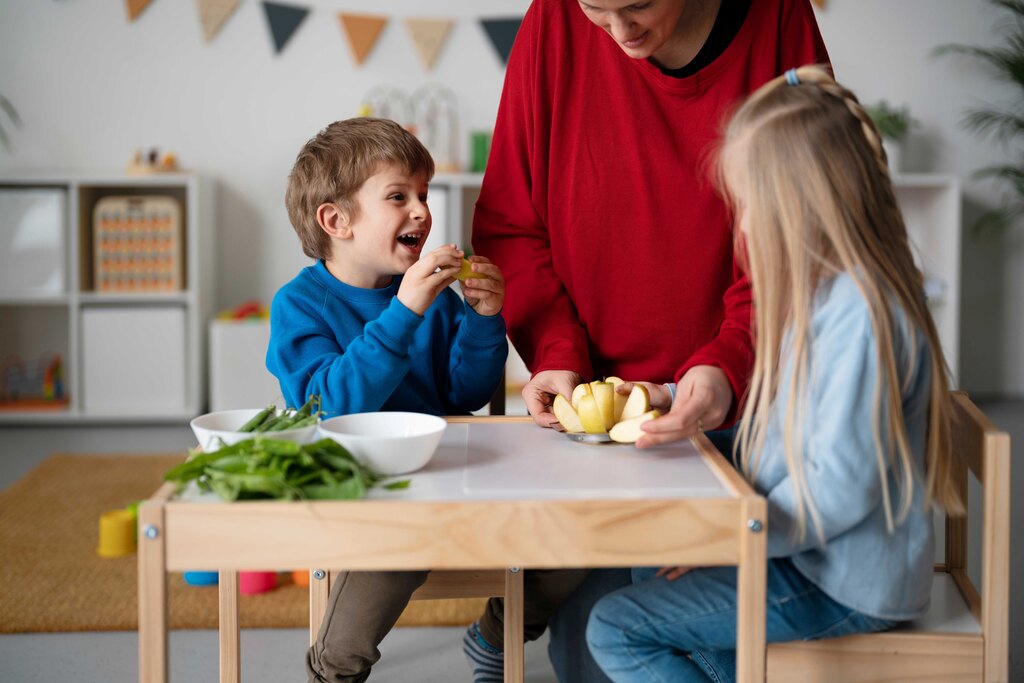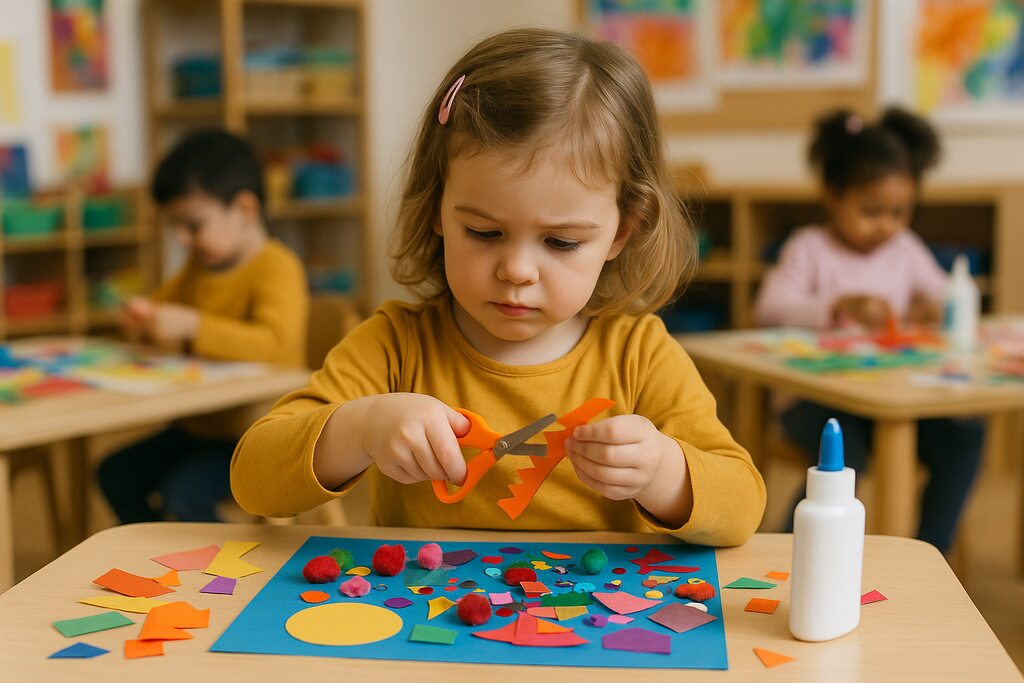By using our website, you agree to the use of cookies as described in our Cookie Policy
Early Childhood Education Info & Tips for Deerfield Area Parents
Helping Two-Year-Olds Through Big Emotions in Deerfield Daycare
Every day in daycare, two-year-olds let their feelings out—loud, fast, and without filters. One minute, a child is laughing. The next, they’re in tears over a toy or refusing to move. These reactions aren’t just noise. They’re the real work of learning how to handle frustration, disappointment, and change. Teachers and parents see it up close: the pushback, the tears, the stubborn stands. This is where emotional growth starts.

What Sets Off Big Emotions
Triggers aren’t mysteries. They show up in the same places, day after day. Here’s what sparks those tidal waves of feeling:
- Switching from playtime to cleanup. Routines get interrupted, and toddlers dig in their heels.
- Sharing a favorite truck or doll. Independence collides with the reality of group life.
- Drop-off at the door. Separation hits hard, even for kids who’ve done it before.
- Hungry, tired, or just uncomfortable. Physical needs spill over into emotional outbursts.
- Words don’t come fast enough. Frustration builds when toddlers can’t say what they want.
In our toddler program, these triggers don’t get ignored. Our teachers spot them early. Instead of brushing off a tantrum, they see a chance to help a child build real coping skills. Every meltdown, every stubborn “no,” becomes a moment to practice patience, empathy, and self-control. That’s not theory. It’s daily practice, shaped by years of hands-on experience.
Giving Toddlers the Words
Most two-year-olds feel more than they can say. When anger or sadness hits, words vanish. That’s when the right language matters. Teachers don’t wait for a child to calm down. They step in with simple, clear words: “You’re mad.” “You’re sad.” “You want that toy.” Naming the feeling doesn’t fix it, but it gives a child something solid to hold onto. It’s the first step toward self-control.
Our early learning program makes feelings part of daily life. Kids learn emotions like colors - through practice, play, and real moments. Teachers pause during stories to study faces. They ask simple questions: "How does she feel?" "What made him smile?" Soon, children spot the signs themselves. A frown means sad. Crossed arms show anger. These small insights add up. When conflicts pop up at playtime, kids now have words ready: "I feel mad" instead of pushing, "I'm sad" instead of crying alone.
How Teachers Steer the Storm
Peace starts with small actions. Our teachers match each child's energy level. When emotions run high, they stay low and steady. A quiet voice and eye contact mean more than loud words. They name what they see: "You seem frustrated." This simple truth - feeling understood - often turns big feelings into small ones.
Structure creates confidence. Each activity flows into the next, giving kids a map of their day. Teachers spot and name good choices: "You shared the blocks." "You used your words when angry." These small wins matter. When children know what to expect and get noticed for doing well, they try even harder next time.
Behind every calm classroom is a team of experienced educators who know what works. We don’t just react. We guide. Our steady presence helps toddlers build the foundation for kindergarten readiness and the social skills that last long after daycare ends.
Building Empathy in Real Time
Social skills grow through everyday moments at our learning studio. Kids act out stories with puppets, take turns in games, and work through conflicts together. Each activity builds real-world skills. When a toy breaks or someone feels left out, children practice finding solutions that work for everyone.
- Story time teaches taking turns to speak and listen
- Pretend play helps kids understand others' feelings
- Group projects show how working together makes things better
Small moments add up to big changes. A child notices a friend looking sad. They share a crayon or offer a smile. Teachers notice and name these choices: "You saw someone needed help." These daily acts of kindness shape how children see themselves and treat others.
What Real Support Looks Like
Growth takes time. Each child moves at their own speed. One week, a toddler might need extra hugs at drop-off. The next, they're helping friends put toys away. Teachers stay steady through it all - celebrating small steps, working through tough moments, and keeping faith in every child's ability to learn and grow.
Parents see the difference at home. Fewer meltdowns. More words for feelings. A child who tries to wait, even if it’s just for a minute. These changes don’t come from luck. They come from a team that understands what two-year-olds need and delivers it, day after day.
Connect With Our Early Learning Team
Ready to support your toddler's emotional growth? Call Creative Paths Learning Studio at 847-372-0079 or contact us to learn more about our specialized approach to emotional development in Deerfield.
‹ Back







